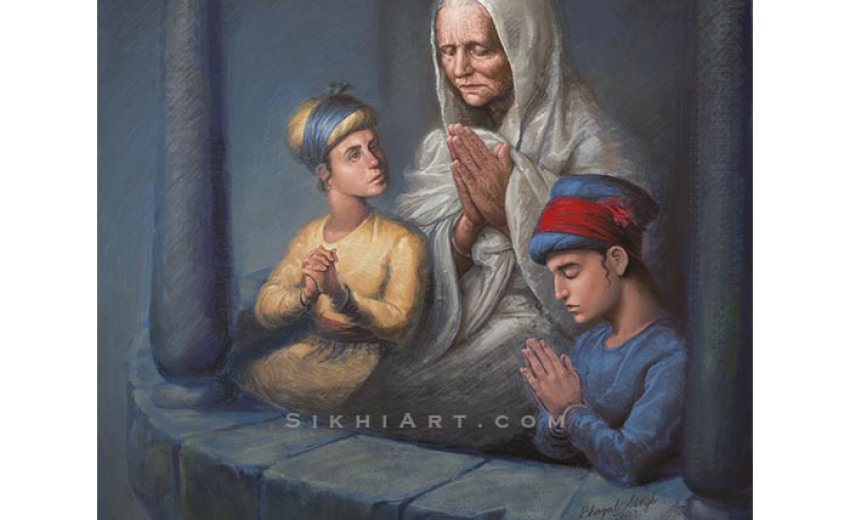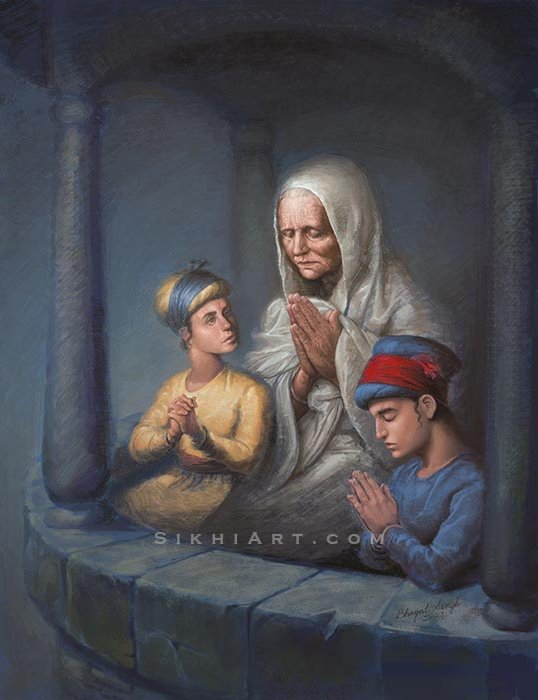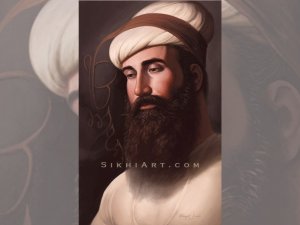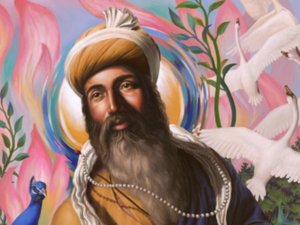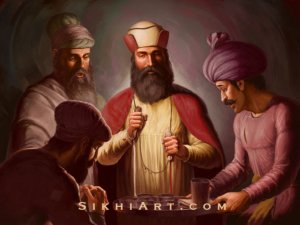“On whose head, He places His Hand [is liberated]. My Lord is the Lord of the helpless. He is the Saviour of the fallen and the Treasure of mercy. Forever and ever, I am a sacrifice to Him.”
– Guru Arjun Dev ji (Guru Granth Sahib, 900)
Guru Gobind Singh ji had challenged the Mughal government for the forceful conversions of Hindus and for the unjust killing of his father and Warrior Saint, Guru Tegh Bahadur ji, who had tried to peacefully persuade the Mughal emperor Aurangzeb to stop.
When Guru Gobind Singh ji arrived in the forest of Machhiwara from Chamkaur, he had lost his two older sons Baba Ajit Singh ji and Baba Jujhar Singh ji in the Battle of Chamkaur.
Before the Battle of Chamkaur, he had evacuated his mother, Mata Gujri Devi ji, his wives Mata Jito Devi ji, Mata Sundari Devi ji and Mata Sahib Devi ji and younger sons Baba Zorawar Singh ji and Baba Fateh Singh ji, out of harm’s way.
In the stormy night, the Sirsa river had flooded so crossing it became nearly impossible. Guru ji was separated from his wives, who were separated from his children and their grandmother.
Mata Gujri ji and the Chotte Sahibzade were looking for a sanctuary however they were tricked and captured by the Mughal police. They imprisoned Mata ji and the children of Guru ji in a cold tower (Thanda Burj).
Cold towers in Mughal architecture were built to be a cool place to relax in the summer. They were built as part of their palaces and buildings, and were of varying heights. Not always a tower as we imagine it today. Sometimes they were just raised off the ground by several feet.
But these were winter months so the cold tower was exposed fully to the onslaught of the winter chill.
Imprisoned here for a few days, the Chote Sahibzade were bricked alive, encased in a wall. When the wall wouldn’t hold up, the Mughal officials decapitated the children.
Mata Gujri ji passed away in the tower as this was going on.
In this painting, Mata Gujri ji and the Chote Sahibzade are saying their Antim Ardas, their final prayer, in the cold tower where they were imprisoned by the Mughal police, before execution.
Guru Arjun Dev ji ki bani –
ਜਾ ਕੈ ਮਸਤਕਿ ਰਾਖੈ ਹਾਥੁ ॥
On whose head, He places His Hand [is liberated].ਪ੍ਰਭੁ ਮੇਰੋ ਅਨਾਥ ਕੋ ਨਾਥੁ ॥
My Lord is the Lord of the helpless.ਪਤਿਤ ਉਧਾਰਣੁ ਕ੍ਰਿਪਾ ਨਿਧਾਨੁ ॥
He is the Saviour of the fallen and the Treasure of mercy.ਸਦਾ ਸਦਾ ਜਾਈਐ ਕੁਰਬਾਨੁ ॥੨॥
Forever and ever, I am a sacrifice to Him.-Guru Granth Sahib, 900
